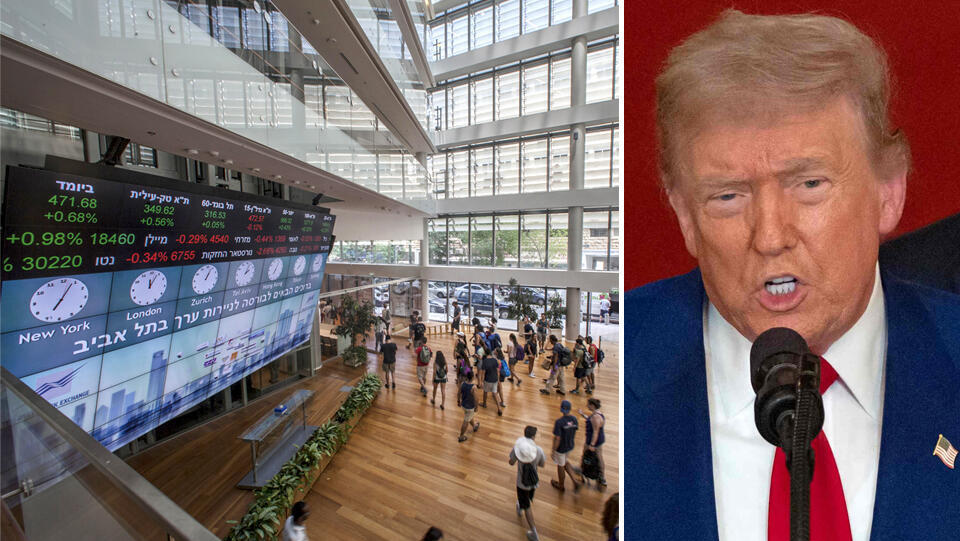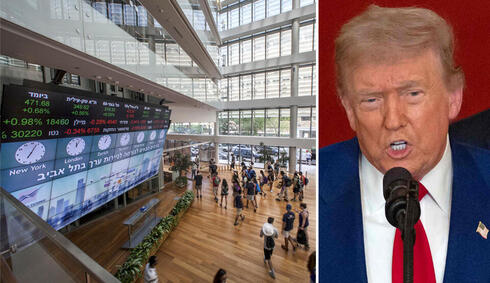
Tel Aviv stocks hit all-time highs amid Iran strikes
Markets rally following the US strikes against Iran’s nuclear facilities as investors bet on Israeli military success and potential regime change in Tehran.
Israeli stocks opened higher on Sunday and hit new all-time highs after the United States attacked nuclear sites in Iran.
The broad Tel Aviv 125 index rose 1.3%, while the blue-chip TA-35 index climbed 1.2% in early trading.
Markets have now gained for six consecutive sessions, rising by about 6% last week as Israel launched strikes on Iranian nuclear and military targets. The escalation of the conflict, which began with a significant and successful Israeli operation, injected a wave of optimism into the local market - among institutional, foreign, and retail investors alike. The Tel Aviv Stock Exchange (TASE) closed its best week since May 2020, with 38 of the 55 stock indexes under the TASE’s index hitting all-time highs. These included the flagship TA-35 and the benchmark TA-125.
Remarkably, this was the strongest first-week market rally in the shadow of war or military escalation since at least the early 2000s. The general stock index jumped 6.1% over the past trading week, the largest gain in the opening week of any war or operation. For comparison, during the first five trading days of “Swords of Iron” war that began on October 7, the general index dropped 6.2%.
To a large extent, investors appear to be pricing in a highly optimistic scenario: not only the removal of an existential threat to Israel, but its rapid elimination. However, wars are complex events that often carry heavy costs in lives, property, and economic stability, even when they are brief or perceived as successful. This raises the question of whether investors are becoming complacent, and whether the recent gains could reverse sharply.
“The surprise effect created by Israel’s attack on Iran, including the elimination of senior officials and strikes on nuclear and ballistic missile sites, shifted the balance in Israel’s favor,” said Guy Mani, Chief Investment Officer of Meitav Dash Investments. “It demonstrated Israeli military superiority and spurred a geopolitical repricing by the market.”
Mani pointed to a similar rally that began in September 2024 after the beeper operation, which altered the balance with Hezbollah and ultimately resulted in the elimination of Hassan Nasrallah. “The Iranian threat is even more serious. So once Israel directly attacked this existential threat, the market chose to see the upside.”
Related articles:
He added that investors may even be starting to price in a potential regime collapse in Iran:
“Iran is the main funder of terrorist organizations in the region and the core of the broader conflict. If this threat recedes, or if regime change seems plausible, the perceived risk premium on Israeli assets will drop. That could bring a second wave of gains, especially if foreign investors start to view Israel as a regional superpower.”
Eran Kalinsky, vice president of investments at More Investment House, struck a more cautious tone. “The situation with Iran is misleading,” he said. “It feels very positive now, but the real question is how it ends. The Chief of Staff has already suggested the conflict will last longer than many think.”
“If that’s the case,” Kalinsky warned, “we’ll likely see a reversal, as the economic costs and budgetary consequences of a prolonged war begin to weigh on markets. Nothing is guaranteed, and it’s far too early to assume a quick resolution.”
